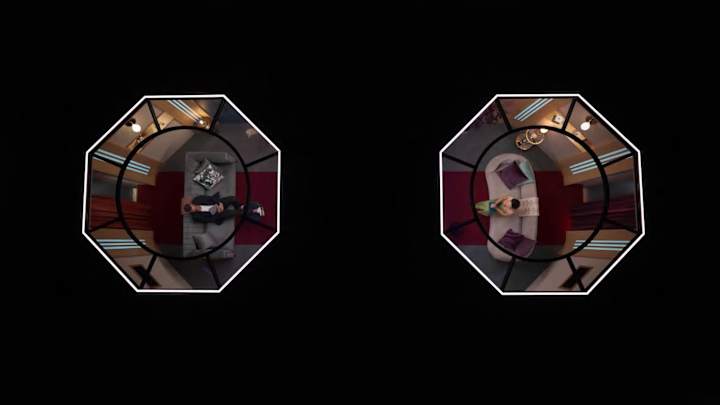Another season of Love Is Blind is underway, and this time with a focus on UK couples. While the series certainly has its flaws, it’s an interesting experiment in the idea that love is actually blind. It’s also a lesson in relationships.
This series is officially rated TV-MA. I’d say it’s something that parents could watch with their teens, though. The language is really the part that is TV-MA, as this is focused on real lives and not scripted fun. Well, there are some elements clearly scripted!
The series offers a look at the good and bad in relationships. There’s also a look at manipulation tactics, how childhood trauma affects people, and more.
Help your teens understand manipulation with Love Is Blind
There is no doubt that manipulation is used throughout the series. We just have to look at the most recent season in the UK. Sam has moments of manipulation with multiple women, and Jasmine even points out that he just says what he thinks she wants to hear. There is no depth to his conversations.
This isn’t the first time something like this has happened, and it happens both ways. Men and women will say things or keep secrets that they know will affect relationships. It’s their aim to get to the proposal stage, but the manipulation eventually comes out.
Teens need to understand the way they act or the things they say can manipulate the way people see or feel about them. They also need to understand how people can do it to them. This can help set them up for healthier relationships built on trust and understanding.
A lesson in openness and honesty with Love Is Blind
When you get to some of the problems couples face on Love Is Blind, it all comes down to communication. Usually, it’s a lack of communication.
The experiment is understandably rushed. There is a lot to learn about people in a short space of time, which is why taking your time in a relationship is important. We get to see what happens when people aren’t open about the fact they’ve been divorced before, they have mental illnesses that aren’t disclosed, or they have a side to them that they only share when they meet someone in real life.
How can you make sound decisions without all the information? How can you expect people to do the same? Love Is Blind is a great way to show teens what happens without openness and honesty—but what can be achieved with it.
It’s okay to step away when it doesn’t feel right
There are a lot of couples who attempt to make things work. They see that something isn’t right, but they push through despite the anxiety and heartbreak it’s causing them. This is partly due to the contracts in Love Is Blind and some of the potential fines faced for not getting to the altar.
When they do get to the altar, there is a sense of embarrassment and anger when it comes to saying “I don’t.” This could lead to people making a bad decision, and there have been a couple of divorces after the series.
While we owe someone grace and understanding, we don’t owe them everything. Parents can help teens understand that it’s okay to step away if it doesn’t feel right. Saying “I don’t” is perfectly fine, but halting things before they get to the altar is a kinder thing to do. Put your own happiness first, because nobody else is going to do it wholeheartedly. If you are going to go into marriage, be prepared for compromise, communication, and commitment.
That’s not to say that you should step away at the first sign of problems. Marriage is all about working through problems. Do you really think every strong marriage is devoid of disagreements and arguments? They happen, but it’s about working through them in a mutually beneficial way. Love Is Blind is a great look at that as you start to look at the way couples treat each other.
